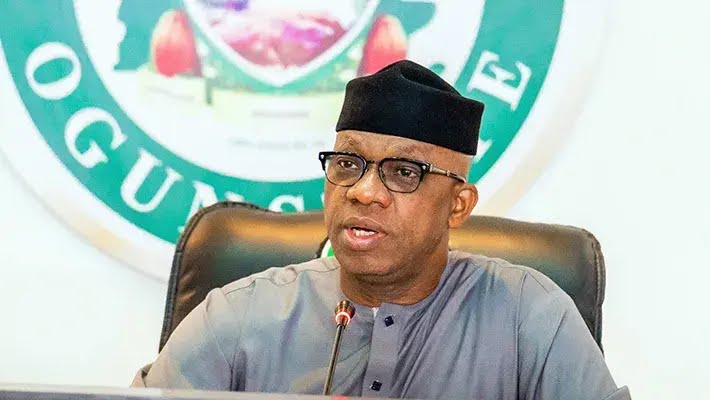NEWS
Gambian Pastor Flees With 52 Phones, Cash After Ibadan Crusade
A Gambian pastor, Dr. Owen Abraham, has been accused of fleeing with 52 phones, cash, and other items of value belonging to attendees of a crusade that he organized in the Aponrin area of Agbowo in Oyo State, Nigeria.
The said crusader, according to some of his victims, said he was led by God to come to Ibadan from The Gambia for the crusade.
Abraham, on the last day of the three-day crusade, claimed that the Holy Spirit directed him to tell people to hand in their phones and valuables, only to later abscond with them.
The victims said Abraham, who lured them into three days fasting and prayer, was nowhere to be found on the last day of the crusade, as all efforts to reach him proved abortive.
A victim, Mrs Grace Akintola, who spoke with newsmen, said many widows went for the crusade because the said pastor promised to give each person a bag of rice and money, adding that Abraham also promised to empower students with scholarship.
Mrs Akintola, a widow, while recounting her ordeal said: “The pastor approached an Igbo lady in our area to assist him to gather widows and students, saying he wanted to help us.
“Someone in my area invited me for the crusade. He wore pastor regalia. He said he will buy a house for one of us and that the house will be fully furnished.
“He promised some people that attended the crusade money. Even politicians cannot give out such amounts he promised.
“On the last day of the crusade, he sold a bottle of water for us at the rate of N4,800. He said perfume is inside the bottle water. Many people paid for the water.”
Another victim, a student of University of Ibadan (UI) who pleaded anonymity, said the pastor ordered them to fast for three days.
The student added that the evangelist collected their phones “so as to keep it away from them and focus on the prayers”. “Unknowingly, it was a trick to get our belongings,” the victim said.
“He said no phone should ring, that was why he collected all the phones. In fact, a lady stood up and wanted to take his photographs but he seized the phone from her.
“On the last day of the crusade, he said he wanted to go and rest at the hotel where he lodged. He later said he wanted to go and eat at UI; we don’t know how he escaped with our belongings.
“As a man of God, we respected him a lot, we didn’t know that he wanted to use the name of God to dupe us,” the student-victim added.
Abraham is currently being sought after by locals in the vicinity, as his name and images have been disseminated through the area via posters, in an effort to locate him.
NEWS
No Place For Sharia Court In Ogun State, Says Gov Abiodun

The Governor of Ogun State, Dapo Abiodun, has issued a stern warning against any attempt to establish a Sharia Court in the state without legal authorization.
This comes in response to the circulation of a digital notice announcing the launch of such a court.
In a statement personally signed on Tuesday, Governor Abiodun emphasized that Sharia Courts cannot be legally established by individuals or groups outside the provisions of the Nigerian Constitution.
READ MORE: Monarch Crisis: Ogun Court Strips Macgregor Of Olu of Orile Ilawo Title
He reaffirmed that the state government only recognizes courts constituted through the legal framework of the Constitution and state laws.
“No Sharia Court is authorized to operate within Ogun State,” Abiodun stated. “The courts legally empowered to adjudicate disputes in the state are Magistrates’ Courts, High Court, Customary Courts, Customary Court of Appeal, Federal High Court, National Industrial Court, Court of Appeal, and Supreme Court.”
He further clarified that Sharia law does not form part of the legal framework in Ogun State and warned against the operation of unauthorized courts or assemblies.
According to the Governor, the state government respects the rights of individuals to practice their religion and apply their faith in personal matters.
However, this freedom does not extend to the creation of institutions or courts without proper legal backing.
Governor Abiodun directed all individuals involved in the creation or operation of the illegal Sharia Court to immediately cease all activities and disband the entity.
He also urged the public to disregard any summons, documents, or communications from the unauthorized court and to report such incidents to the authorities.
“The Ogun State Government will uphold the rule of law, ensure respect for the legal and judicial framework within the state, and prevent any breakdown of law and order,” the statement concluded.
NEWS
JUST IN: Tinubu Returns To Abuja After Energy Summit In Tanzania
President Bola Ahmed Tinubu has returned to Abuja after attending the Africa Heads of State Energy Summit held in Dar es Salaam, Tanzania.
The presidential aircraft, 001, landed at the Nnamdi Azikiwe International Airport at 7:40 pm on Tuesday, according to the State House media office.
The President was received by top government officials, including the Minister of the Federal Capital Territory, Nyesom Wike, and the National Security Adviser, Nuhu Ribadu.
READ ALSO: ‘I Can Only Be Removed At A National Convention – PDP’s Samuel Anyanwu Declares
The summit, organized by the Tanzanian government in partnership with the African Development Bank Group and the World Bank, centered on advancing “Mission 300,” an initiative designed to provide electricity access to 300 million Africans by 2030.
During the event, African leaders, private sector representatives, development partners, and civil society organizations discussed strategies to overcome the continent’s energy challenges.
Discussions focused on renewable energy, energy efficiency, and accelerating energy access in underserved regions, with an emphasis on mobilizing private sector investment.
On the opening day, ministers from participating nations presented their national energy strategies, known as compacts, which outlined their plans to achieve universal energy access within five years.
The summit culminated in the endorsement of the Dar es Salaam Energy Declaration by Heads of State, including President Tinubu, which charts a unified path for achieving the goals of Mission 300.
In his address, Tinubu reaffirmed Nigeria’s leadership role in Africa’s energy sector and emphasized the country’s commitment to universal energy access.
He highlighted Nigeria’s ongoing clean energy initiatives and detailed its strategy for integrated energy delivery across the continent.
“Nigeria remains committed to achieving universal access to energy and will continue to champion solutions that integrate renewable energy and enhance efficiency across Africa,” Tinubu said.
The President was accompanied by key members of his administration, including the Minister of State for Foreign Affairs, Bianca Odumegwu-Ojukwu; Minister of Power, Adebayo Adelabu; and Special Adviser on Energy, Olu Verheijen.
International News
Fire Breaks Out On Air Busan Plane In South Korea, One Injured
An Air Busan passenger plane caught fire at Gimhae International Airport in Busan, South Korea on Tuesday, forcing the evacuation of 176 people on board, Yonhap News Agency reported.
The incident occurred at around 10:30 p.m. local time (1330 GMT) as the aircraft, which was bound for Hong Kong, ignited near its tail section.
A total of 169 passengers and seven flight attendants were evacuated using inflatable slides, Yonhap reported.
SEE ALSO: South Korean Court To Decide Fate Of Detained President Yoon Suk Yeol
One person sustained injuries during the evacuation, but no further details about the injury or the fire’s cause were immediately available.
South Korea’s Busan fire authorities were not reachable for comment, according to AFP.
This incident comes just weeks after South Korea’s worst aviation disaster in decades.
Recall that on December 29, a Jeju Air Boeing 737-800 crash-landed and exploded after striking a concrete barrier at Muan International Airport.
The crash killed 179 of the 181 passengers and crew on board.
According to Flightradar24, Air Busan’s fleet is composed entirely of Airbus aircraft.
The cause of Tuesday’s fire is under investigation.



















